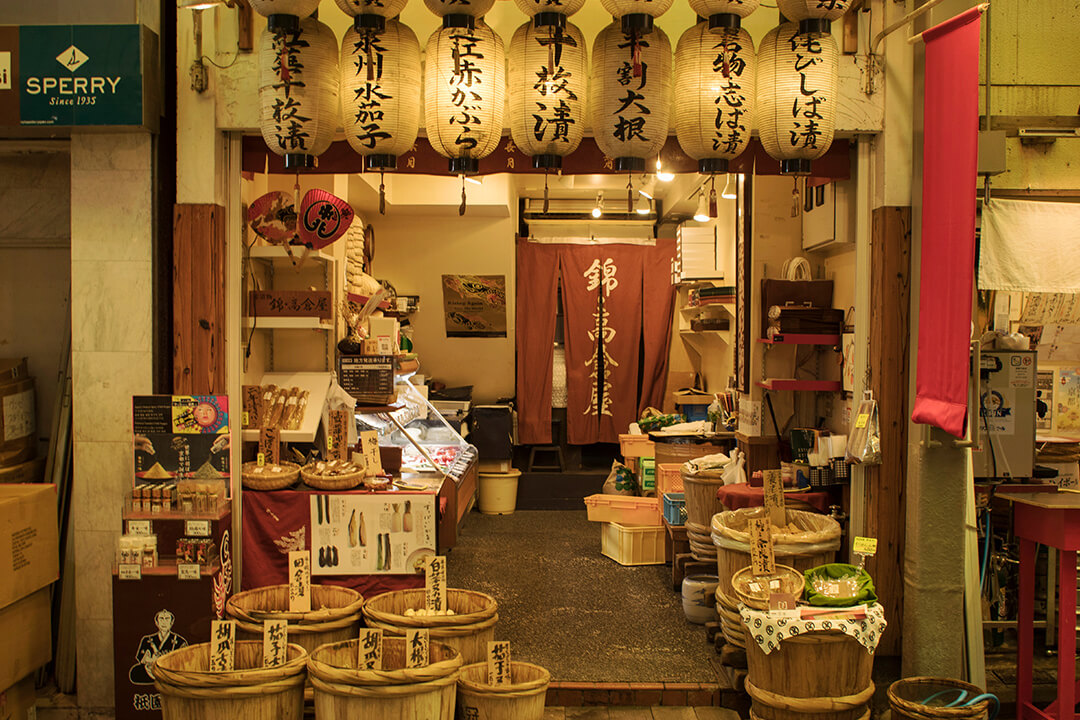shop of pickles
9件Please note that business hours and regular holidays may have changed.
Tachinomidokoro Gabana
In 2016, a pickle shop in Nishiki Market with a row of pickling barrels suddenly became a standing bar. At first, the place just offered Sawaya Matsumoto junmai sake, beer, and pickles, but the idea that a standing bar is a “ford on the seashore” brought in some crazy staff from all over the place, and now it is a bar where people from all over the country come to enjoy a drink. It is a very marketplace-like bar where creatures that have continued to evolve in their respective unique ways snuggle together and drink.
- pickles
- obanzai
- restaurant
- sake, whisky, beer
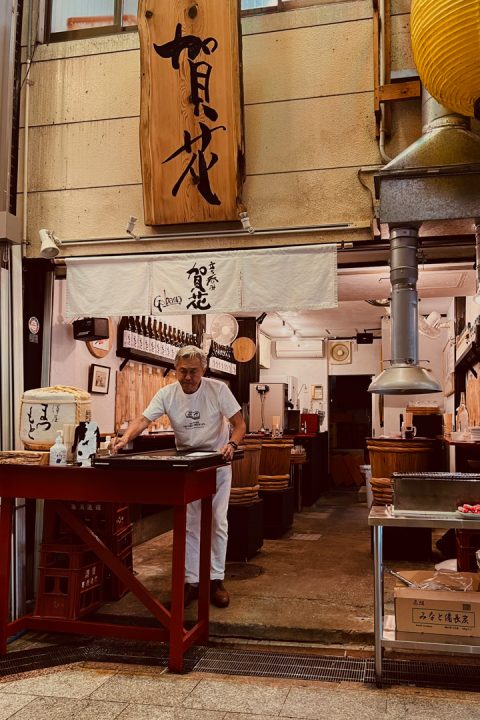
Takakuraya
Takakuraya is located two doors down from the pickle shop Nishiki Takakuraya in Nishiki Market. This restaurant offers freshly cooked Koshihikari rice from Takashima City, Shiga Prefecture, hearty miso soup with a variety of ingredients, delicious pickles, and side dishes to go with rice and sake. This restaurant opens at 6:00 a.m.; you can enjoy the market atmosphere here while having breakfast, lunch, or dinner.
- pickles
- obanzai
- restaurant
- sake, whisky, beer
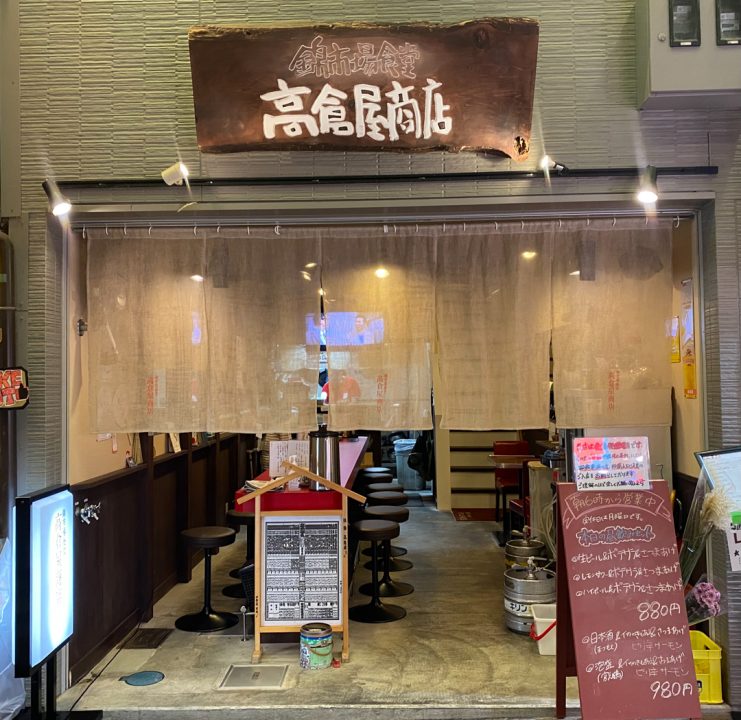
Nishiri
“Our goal is to bring health and happiness to our customers by respecting the Japanese food culture under the theme of ‘seasonal, delicious, and mild,’” they say. “In addition to traditional pickled products such as senmaizuke sliced turnip and suguki turnip, we also offer the ‘Kyo-no-assari-zuke (light Kyoto pickels)’ series, which brings out the flavor of vegetables with less salt than usual, and the ‘Nishiri Labre’ series, which utilizes the lactic acid bacteria Lactobacillus brevis KB290, abbreviated as ‘Labre,’ discovered in suguki-turnip.”
- pickles
- restaurant
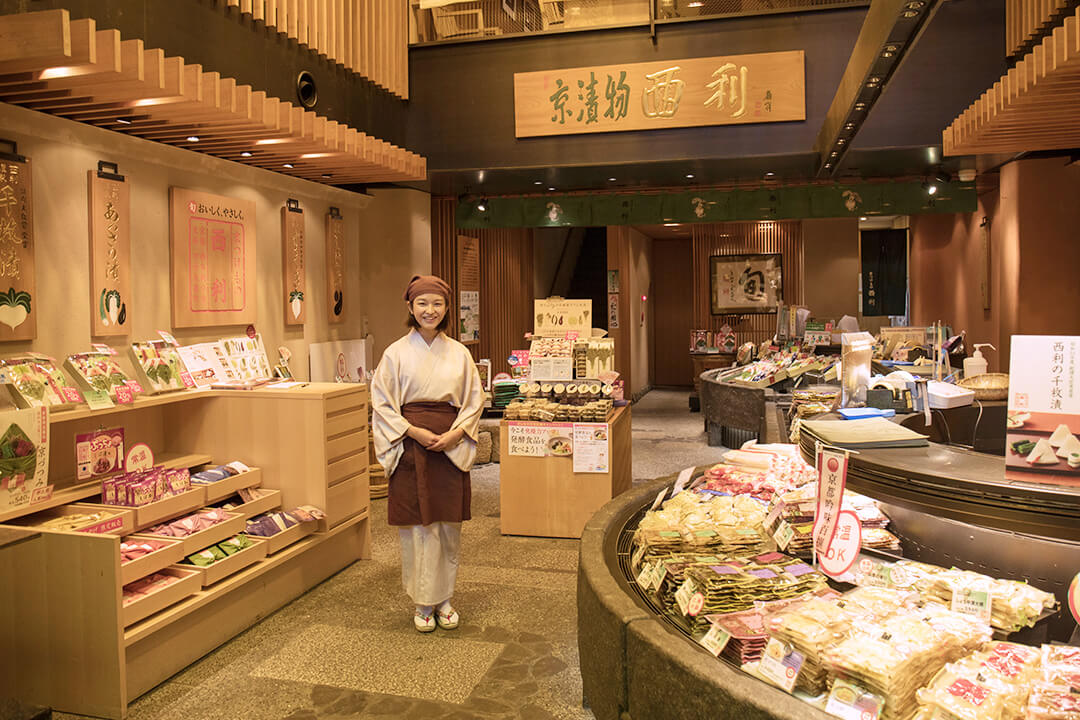
Uchida
“Pickles are alive," the owner says. Uchida opened in Shimabara, Kyoto in 1940. When making Kyoto pickles, carefully selected vegetables are pickled by skilled artisans who adjust the amount of weight and salt according to the season. Uchida employs the traditional way of pickling, hoping that more people will enjoy Kyoto pickles.
- pickles
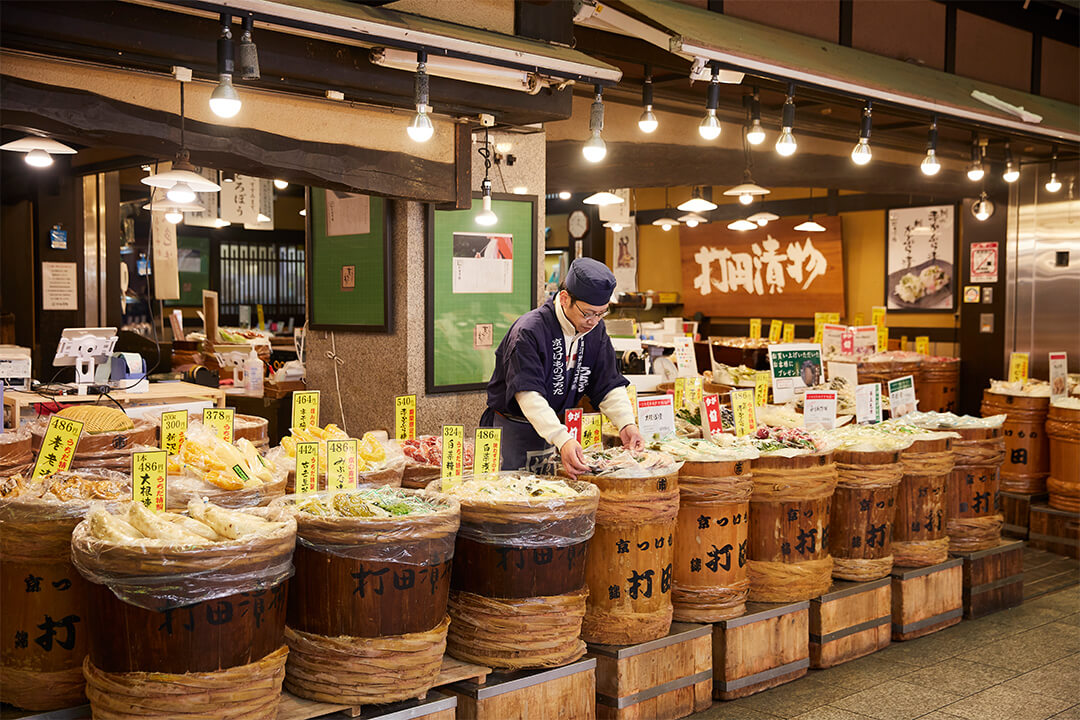
Masugo Main store
The name “Masugo” has been passed down since they were a brewery operated in Nishikyogoku, Kyoto in the mid-Edo period (1603-1867). It was in 1930 that the company became the current manufacturer and seller of Kyoto pickles. They have three stores in Nishiki Market, and the Main Shop is large enough to offer a wide range of products from daily items to souvenirs and gifts. They are particular about ingredients and production methods, and make their pickles every day at the back of the shop.
- pickles
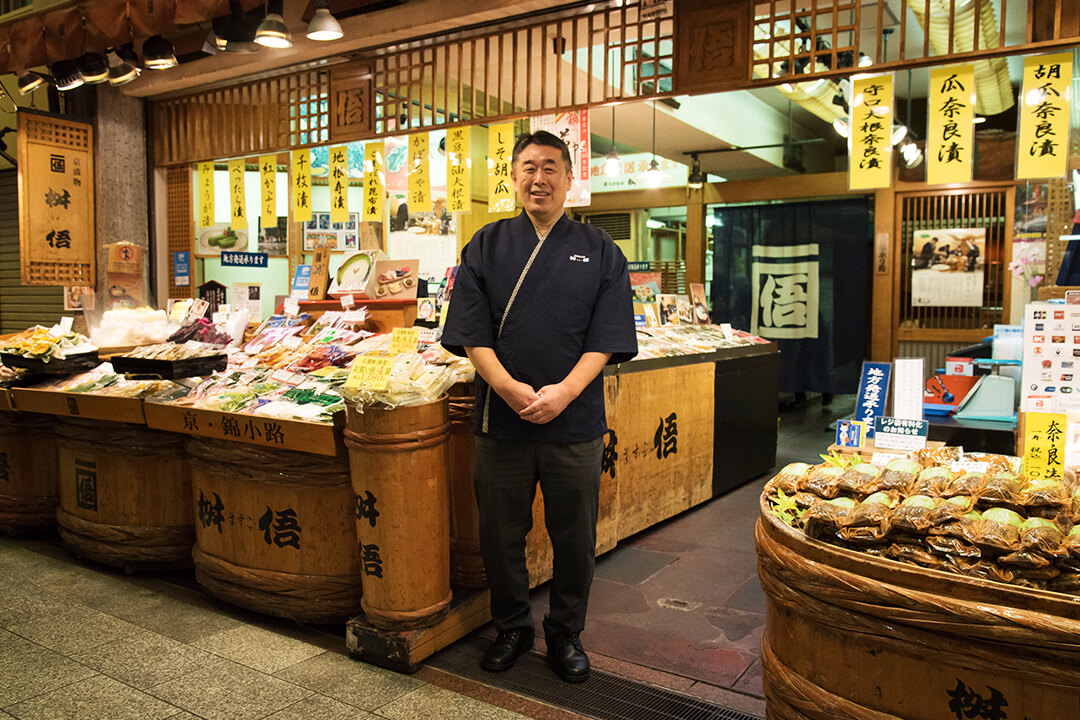
Masugo North
The shop’s name is derived from the sake brewing business that they operated in the mid-Edo period(1603-1867) in Nishikyogoku, Kyoto. The current business of producing and selling Kyoto pickles began in 1930. They have three shops in Nishiki Market, and this store, the North Shop, features everyday products such as sweet-and-spicy takuan radish and pickled mibuna green, fermented products such as white miso, and commercial products for restaurants, hotels, and ryokan (Japanese-style inns).
- pickles
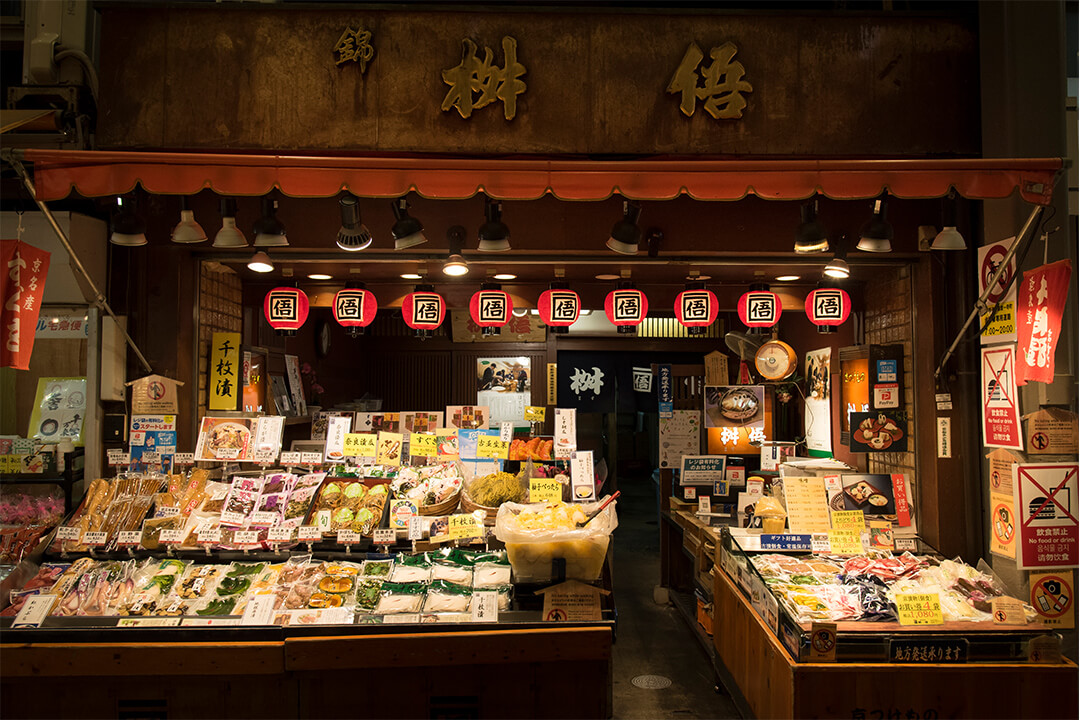
Masugo East
The shop's name is derived from the sake brewing business that they operated in the mid-Edo period in Nishikyogoku, Kyoto. The current business of producing and selling Kyoto pickles began in 1930. They have three stores in Nishiki Market, and the East Shop offers a variety of tasty pickles sold in relatively small portions to meet today's demands, with portions just enough to enjoy with one meal.
- pickles
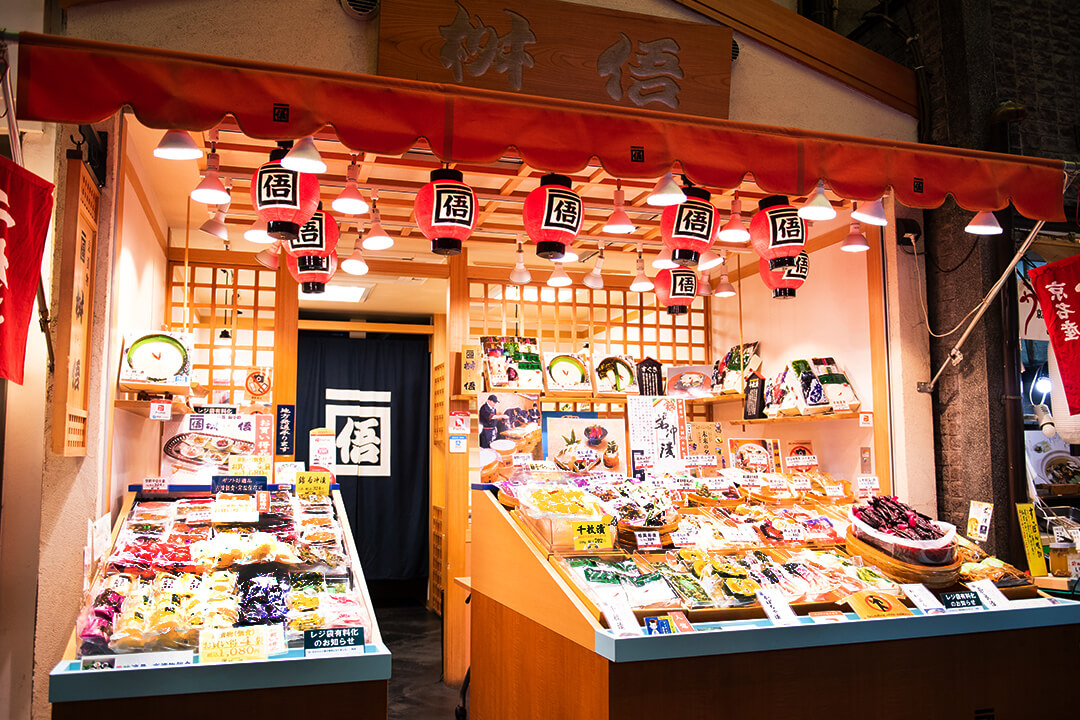
Mori
Mori delivers Kyoto pickles that bring out the natural flavors of the ingredients. This shop not only purchases the ingredients, but also grows them on its own farm in Kameoka, Kyoto. Mori also maintains its traditional method of pickling passed down through generations. ri is committed to making traditional Kyoto pickles, it also focuses on creating pickles that transcend traditional boundaries.
- pickles
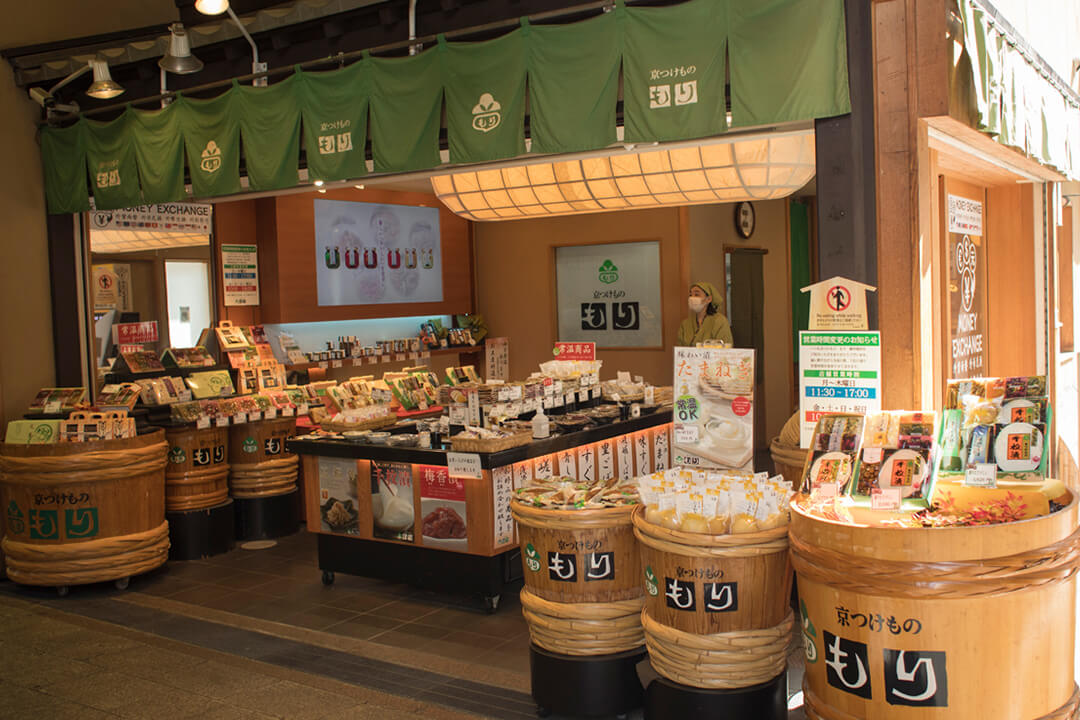
Nishiki Takakuraya
Takakuraya’s owner stands by the notion that “Kyoto pickles are not salty.” Takakuraya’s lightly pickled Daifuku hakusai —a variety of Chinese cabbage with a yellow core—is pickled in a low-sodium kelp stock to preserve the flavor of the sweet core. The red-leafed daikon radish, Shizumurasaki, which is grown only by one farm in Kumiyama, Kyoto Prefecture, has a refined taste that spreads in the mouth.
- pickles
